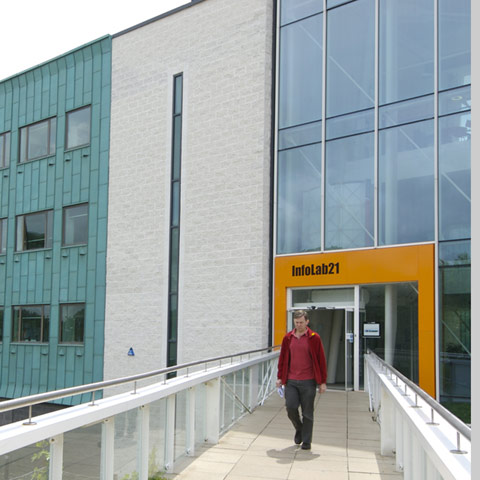£1.9M to develop technology for social change
11/24/2011 00:00:00

The social media boom has transformed our lives, shaping everything from the way we shop and socialise to how we do business.
Change-hungry citizens have also turned to mobile digital communications during key world events from the London riots and the subsequent ‘clean up the streets’ campaign to the so called ‘twitter revolutions’ in Tunisia and Egypt.
Although existing social technologies coupled with mobile computing have been extremely effective in promoting citizen-led activism, they were not designed specifically for it.
In an ambitious project launched this month, researchers will set about developing completely new technology, designed from scratch to support people who want to do more with their iPhone than click on a Facebook ‘like’ button.
The three year project (called Catalyst) will look at how different communities use technology to tackle major problems in order to understand the limitations of existing tools. Then, in a series of six short-term ‘research sprints’ running back to back, they will design and build six prototypes of next generation tools more suited to the job.
Catalyst brings together a team of academics from a range of disciplines including social science, computing, design, environmental and management science. A range of community groups will also be recruited to form an integral part of the research team
The project – which was one of four out of 140 to secure funding nationally - will also seek to understand what stimulates people to participate in active citizenship in the first place.
Project leader Professor Jon Whittle of Lancaster University’s School of Computing and Communications said: “Recent events mean that now is both an opportune and critically necessary time for citizen-led innovation. On the one hand, society has experienced a massive global economic crisis. We are all being asked to do more for less and one consequence is that citizens are now expected to become more active participants in solving local problems.
“On the other hand, governments in both the UK and US are opening up public data in a drive for transparency that puts information into the hands of citizens in a way never before envisaged.
“We have become highly skilled at using the web to influence people in order to market products and make money but what if we could use it to make the world a better place?
“We hope that by tackling a series of quick research projects throughout the life of the project we can begin to build on the collective field of knowledge in this rapidly changing area of communications.”
Catalyst will work with partners in Lancaster, Manchester and Northern Ireland to develop next generation systems that empower citizens to create bottom-up, innovative solutions to societal problems. Catalyst will also focus on widening the research to communities across the UK. This will be facilitated by two organisations - the Royal Society for the encouragement of Arts, Manufactures and Commerce (RSA) and Community Matters.
The project will bring together a group of social scientists (sociology; anthropology), computer scientists (mobile computing; web2.0; distributed systems), management scientists (consumer behaviour) and designers (innovation).
Catalyst was launched on November 22 2011.
The Catalyst project is holding an Ideas Lab on 14 December which will bring together community organisations and academics to form project ideas. More information can be found on the project website.